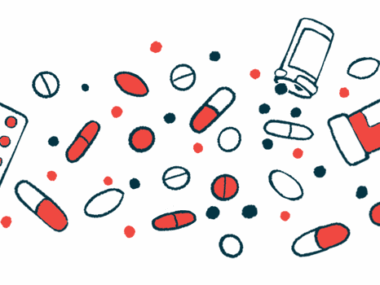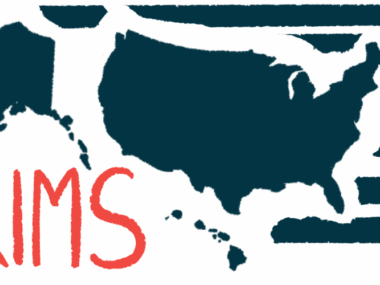Aubagio Reduces Lesions in Children in Trial, but Relapse Data Troubled
Written by |

Aubagio (teriflunomide) failed to significantly reduce relapses in children with multiple sclerosis (MS), but two years of treatment decreased the number of brain lesions on MRI scans, according to the final results of the Phase 3 TERIKIDS clinical trial.
Importantly, the lack of a signficantly lower relapse rate may have been due to the high number of participants switching to the open-label phase due to evidence of high disease activity on imaging scans, which reduced the study’s statistical power and may have biased the results, the researchers noted.
“The trial did not meet its primary endpoint — delaying time to the next clinical relapse — possibly because of more frequent switches to the open-label arm due to high MRI activity,” Tanuja Chitnis, MD, the study’s lead author and director of the Pediatric Multiple Sclerosis Center at the Massachusetts General Hospital, said in a press release.
Chitnis added, “The study did meet several key secondary endpoints related to teriflunomide’s ability to reduce the number of new or enlarged lesions that are detected through MRI, suggesting that the medication might have beneficial effects in children with relapsing forms of multiple sclerosis.”
The clinical study, “Safety and efficacy of teriflunomide in paediatric multiple sclerosis (TERIKIDS): a multicentre, double-blind, phase 3, randomised, placebo-controlled trial,” was published in the journal The Lancet Neurology.
Aubagio is an oral, once-daily treatment that works by suppressing inflammatory immune cells that cause damage to the nervous system and drive MS progression.
The treatment is approved since 2012 for adults with relapsing forms of MS, including clinically isolated syndrome, relapsing-remitting MS (RRMS), and active secondary progressive MS.
Based on data from the TERIKIDS Phase 3 clinical trial (NCT02201108), Aubagio’s indication was recently expanded in the European Union to include children and adolescents, ages 10 to 17, with RRMS. The U.S. Food and Drug Administration, however, rejected a similar label expansion, citing insufficient data to support Aubagio’s approval for younger patients.
TERIKIDS, sponsored by Sanofi, was designed to evaluate the safety and efficacy of Aubagio versus a placebo in 166 children, ages 10 to 17, with relapsing forms of MS.
After a four-week screening period, all were randomly assigned to either Aubagio (109 patients) or placebo (57 patients) tablets, given once daily for up to 96 weeks (about two years).
Those who completed the main trial, or had evidence of high disease activity on MRI scans, even without a confirmed disease relapse, could enter an open-label extension and receive Aubagio for an additional 96 weeks.
The study’s primary goal was to determine whether Aubagio delayed the time to a first confirmed relapse, compared with a placebo. Results showed that patients on Aubagio took a median of 75.3 weeks to experience a first relapse, compared with 39.1 weeks on those on placebo. While this represented a 34% decrease in the risk of clinical relapse, the results failed to reach statistical significance.
According to the researchers, patients on the placebo group switched more often and earlier to the open-label part due to evidence of high disease activity. The proportion of patients making that switch was also higher than anticipated.
“The relatively large number of censored patients in the placebo group reduced the power of the study and probably biased the results against teriflunomide,” the researchers wrote.
A pre-specified analysis that considered this switch found that patients on Aubagio took a median of 72.1 weeks before experiencing a clinical relapse or switching to the open-label part, compared with 37 weeks for placebo. This represented a significant, 43% reduction in relative risk.
In addition to the primary goal of time to the first relapse, key secondary imaging outcomes were also assessed, such as the number of T1 brain lesions (active inflammatory lesions) and T2 lesions (both old and new lesions).
Other secondary outcomes included the percentage of relapse-free patients, changes in lesion volume, and number and volume of T1 hypointense lesions (areas of permanent nerve fiber damage). Changes in brain volume and cognitive impairment were also measured.
Results showed that Aubagio significantly reduced the number of new or enlarged lesions by 55% and the number of inflammatory lesions by 75%, compared with a placebo.
The change in total lesion volume was also significantly lower with Aubagio after two years, whereas a decrease in areas of permanent damage was observed after one and two years. Aubagio also reduced the number of lesions with permanent nerve damage by 49%.
The proportion of relapse-free patients after two years was also higher with Aubagio compared with placebo (59% vs. 46%), and more patients receiving Aubagio had no new or enlarging lesions over that time (15% vs. 12%).
No differences in brain volume or cognitive function were observed.
The proportion of patients with no evidence of disease activity after two years — a pre-specified exploratory endpoint defined as no clinical relapse, no disability progression sustained for at least 24 weeks, and no new MRI activity — was also greater in the Aubagio group (12% vs. 4%). Researchers found no differences in overall survival time between the two groups.
A planned interim analysis of the current open-label results was consistent with TERIKIDS findings. “Full results for the open-label period will be published upon completion,” the investigators wrote.
Adverse events were reported in 88% of Aubagio-treated patients and 82% in the placebo group. Serious adverse events were experienced by 11% of patients in both groups.
Adverse events that were more frequent with Aubagio treatment included upper respiratory tract infection, common cold, hair thinning, abdominal pain, tingling sensations, and elevated blood creatine phosphokinase, a marker of muscle damage.
Two patients in the Aubagio group had acute pancreatitis, and two experienced an elevation in pancreatic enzymes. Of these, three events led to treatment discontinuation.
“Given the current paucity of safe and effective treatments in this population, which often presents with highly active disease, the potential addition of teriflunomide as another treatment option would help control disease and contribute to building a robust therapeutic arsenal for children with relapsing multiple sclerosis,” the investigators wrote. “Further, its oral route of administration might promote compliance in paediatric patients.
“Data from sensitivity and secondary analyses of the TERIKIDS trial provide some support for the use of teriflunomide in this population, but further evidence would strengthen these findings,” they added.



